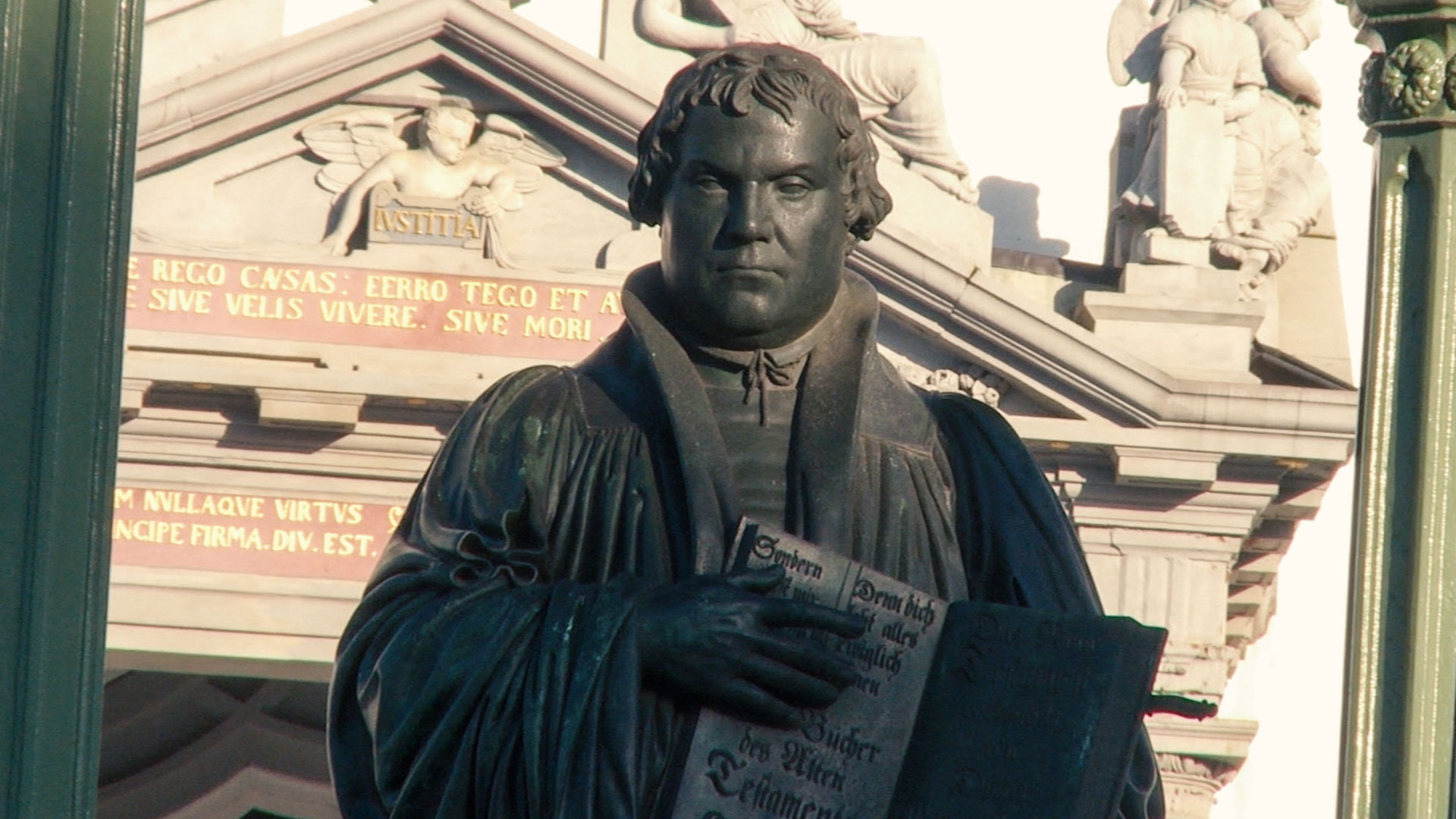
WITTENBERG, Germany – It was in the small German city of Wittenberg in 1517 that a local professor of moral theology is said to have nailed 95 theses to the doors of the castle church, and by that single act, changed the world.
Germans and Christians from around the world gather every year on October 31st to celebrate Luther and what he did.
Luther’s Time: Back to the Future
But Luther’s time was rarely this colorful or this tidy. The 1500s in Germany were cold, muddy, and dreary. This is more like the Wittenberg of Luther’s time, and it was a period with interesting similarities to today.
There are interesting similarities between Luther’s time and today. In 1517, the Holy Roman Empire, like the European Union, was beginning to disintegrate. New technology – the print press – was as revolutionary as social media, and pushing into the borders of Europe: the armies of Islam.
Even though he was an adopter of new technology, Luther would probably try to destroy a piece of new technology we saw in Wittenberg – robot which dispenses a blessing in seven languages.
It’s interesting to watch a nation that has in many ways turned away from God – or at least away from biblical Christianity – celebrate Luther, a man of the Bible, so enthusiastically.
The Secular Celebrate the Sacred
But how would Martin Luther feel about today’s secular Germany?
Famous German Lutheran pastor Dr. Theo Lehmann told us Luther would “turn over in his grave.”
One of the world’s leading authorities on the reformation, Yale professor Dr. Carlos Eire, says the number one reason Luther would be surprised by the celebration of his life today is that he didn’t expect there to be a world in 2021.
“Luther expected the world to end in his lifetime, or soon thereafter,” Eire says. “If Luther could time travel, he would just be shocked about what has become of the Christian world, the fact that so few Europeans now attend church.”
Loud, Smelly, and Rude
Despite the sophisticated-looking busts and sculptures of his appearance, Luther was not genteel. He liked to argue, and he did not like to be disagreed with. He was a product of his times, says Dr. Benjamin Hasselhorn, curator of the National Luther Exhibition at the Lutherhaus Museum in Wittenberg.
Hasselhorn says Luther’s times were loud and rude.
“In central Germany in that time people were not polite. They were not quiet,” says Hasselhorn. They were loud and they drank beer and they ate a lot of meat and they were rude and so Luther was one of them.”
Luther an Anti-Semite?
One of the most controversial questions about Luther is whether he was an anti-Semite?
After expressing tolerance toward Jews earlier in his life, Luther wrote terrible things about the Jewish people later in life; writings that were even used by the Nazis.
Eire says, “Luther called for all synagogues to be burned, and for Jews to be driven out of Germany. He didn’t call for a Holocaust. He didn’t call for the mass extermination of Jews, but had horrible things to say about Jews and the character of every Jew, that now we would consider anti-Semitic for sure.”
Dr. Hasselhorn says the question of whether Luther was an anti-Semite is complicated.
He says, “I think you can’t answer that. You can say ‘no,’ but then you have to say he was an anti-Judaist. But you also can say ‘yes,’ but then you have to say it was not modern anti-Semitism, it was early modern anti-Semitism, whih is slightly different. Luther’s attitude toward the Jews was driven by religious motives, not by ethnicity.”
God’s Agent of Change
Luther was an imperfect vessel that God used to bring Christianity back to the authority of scripture.
He also changed the way we worship. Eire says Luther made Christianity a faith about the living, by doing away with Purgatory.
“Before Luther, Christians used to spend a lot of their time, a lot of effort and sometimes a lot of their money, on masses for the dead, to get their relatives released from Purgatory. And that changed completely.”
Luther is a key reason we have so many protestant denominations today.
Eire says, “When he was born, everyone in Europe belonged to the same church. And when he died, there wasn’t one church. There were various churches, all competing with one another.”
There were many reformers before and after Luther. But Eire calls Luther the match that lit a powder keg, setting several things in motion.
Hasselhorn quotes German Lutheran Pastor Dietrich Bonhoeffer, who was killed by the Nazis, who said Luther “set in motion things he never would have wanted: the enlightenment, the secularization.”
Hasselhorn says Luther “would have many things to criticize about his church, what it has become today, (also) about Europe, and about the Western world itself.”
Perhaps Germans are fortunate Luther cannot return to see what has become of modern Germany and the Western world.
He probably would have spoiled the party.
The remainder of this article is available in its entirety at CBN

